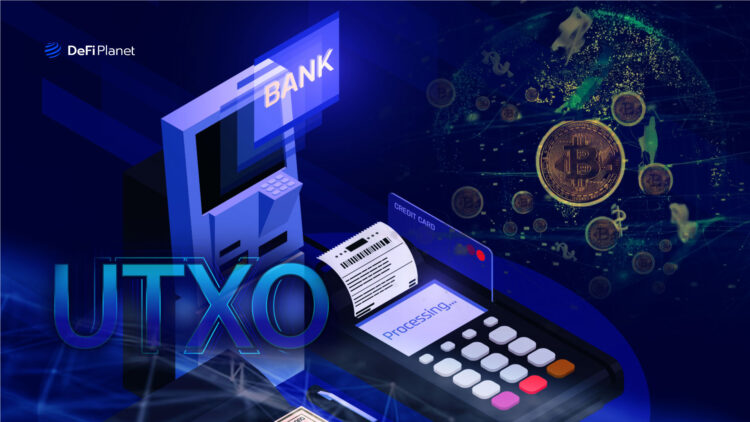Last updated on August 31st, 2023 at 10:27 am
Digital currencies emerged as an alternative to traditional fiat, with the goal of exploring new financial opportunities, lowering transaction costs, and promoting financial inclusion. However, early forms of digital currencies, like e-gold, faced challenges in solving the double-spending problem, rendering them impractical for everyday use.
The double-spending problem arises from the risk of spending the same money more than once. It causes negative economic consequences and devaluation of the currency. Cryptocurrencies like Bitcoin (BTC), Litecoin (LTC), and NEO, on the other hand, effectively addressed this issue by incorporating the concept of unspent transaction outputs (UTXOs).
UTXOs represent the record of cryptocurrency tokens that have not yet been used or spent and can be utilized in future transactions. This UTXO model significantly contributes to the broad acceptance, security, and popularity of cryptocurrencies, as exemplified by BTC.
You may observe your balance as a single value when using a Bitcoin wallet for BTC transfers. However, beneath the surface, the mechanism determining your Bitcoin network balance is based on UTXOs.
Although an in-depth understanding of UTXOs is not mandatory for completing Bitcoin transfers, knowing how these transactions work can enhance your comprehension of cryptocurrencies and provide an advantage in navigating the digital currency landscape.
The purpose of this article is to provide a thorough understanding of UTXOs, their significance in cryptocurrency management, and their inherent limitations.
What is Unspent Transaction Output?
An unspent transaction output (UTXO) refers to the output or remaining balance from a transaction that has not yet been spent.
In a cryptocurrency wallet, the unspent transaction output (UTXO) actively represents the available balance the owner can spend in future transactions. Instead of a single balance, UTXOs may comprise balances from multiple distinct transactions.
For example, let’s say you have 1 BTC in your wallet, and a friend sends you an additional 0.2 BTC. In this case, your total balance would be 1.2 BTC. However, due to the uniqueness of each transaction, this balance would be treated as two separate unspent transaction outputs (UTXOs). The first UTXO would be your original 1 BTC balance, and the second UTXO would be the 0.2 BTC transfer from your friend.

When you make a purchase that costs 1.1 BTC, both UTXOs of 1 BTC and 0.2 BTC would be combined and used for the transaction. A new UTXO of 1.1 BTC would be created and sent to the recipient’s address, while a new UTXO containing your remaining balance of 0.1 BTC would be generated. This updated UTXO would represent the new state of your account. Note that this example is hypothetical and does not account for gas fees.
Unspent transaction outputs help maintain the network’s record of spendable crypto tokens and determine who is authorized to spend them. Additionally, UTXOs are used to achieve consensus in blockchain networks. They are also instrumental in achieving consensus in blockchain networks.
A collection of all existing UTXOs of a crypto token at a specific time is referred to as a ‘UTXO set.’ In systems like Bitcoin, network nodes verify transactions by checking the existence, unspent status, and ownership of the referenced UTXOs by the sender. This verification process ensures the integrity and security of the blockchain.
Besides Bitcoin, other significant cryptocurrencies like Litecoin (LTC), Bitcoin Cash (BCH), Dash (DASH), and Zcash (ZEC) also adopt the Unspent Transaction Output (UTXO) model for transaction management and maintaining the blockchain state. These cryptocurrencies offer various features, including privacy enhancements and scalability improvements, while retaining the UTXO model for their core operations.
It is essential to note that while the UTXO model is used in many popular cryptocurrencies, not all use it. For instance, Ethereum utilizes an account-based model, which differs significantly from the UTXO model.
How are UTXOs generated?
Unspent Transaction Outputs (UTXOs) are not generated independently; they are a natural outcome of the transaction process. When a user receives funds, new UTXOs are created and added to their address, forming the basis for future spending.
To initiate a transaction in a UTXO-based cryptocurrency, a user specifies one or more recipients and the amount of cryptocurrency to be sent. These specified amounts become transaction outputs, representing the value exiting the sender’s address and heading to the recipient(s).
To create a new transaction, the sender must also select one or more unspent transaction outputs (UTXOs) as inputs (if they have multiple UTXOs). Each input carries a reference to the UTXO being spent, along with cryptographic signatures to prove ownership.
Once a transaction is confirmed and incorporated into the blockchain, new UTXOs are generated as transaction outputs for the recipients. These UTXOs become spendable in future transactions by the recipients.
UTXOs can only be spent in their entirety, so if a sender wants to spend less than the full value of a UTXO, the remaining amount is returned as change to a new address (UTXO balance) owned by the sender.
Upon verification and addition to the blockchain, the UTXOs specified as inputs (the sender’s balances) are consumed or “spent” and removed from the UTXO set. This makes them useable in future transactions.

The process of UTXO generation ensures the transparency and integrity of transactions in a decentralized blockchain system by meticulously tracking the unspent outputs that can serve as inputs for subsequent transactions.
Upsides of the UTXO model for Cryptocurrency Management
The UTXO model provides several key benefits that contribute to the efficiency, security, and scalability of cryptocurrency systems:
Efficient Transaction Verification
UTXOs play a vital role in validating cryptocurrency transactions by providing proof of ownership through specific inputs. The network verifies that these referenced UTXOs are unspent and sufficient for the transaction, ensuring accurate and reliable transaction processing.
Immutable Blockchain State
By tracking unspent outputs, the UTXO model helps maintain the immutable state of the blockchain. This transparent record of ownership prevents double-spending and ensures the integrity of the network, facilitating auditable and trustworthy transaction histories.
Enhanced Security
The indivisibility of UTXOs enhances transaction security. Each UTXO can only be spent once, eliminating the risk of collisions between conflicting transactions. This design fortifies the network against malicious attempts to override the system by bad actors.
Scalability and Efficiency
UTXOs offer scalability advantages in certain scenarios when compared to account-based models. Transactions can be processed in parallel since each UTXO can be independently verified. This parallel processing capability improves transaction throughput and reduces latency, making UTXO-based cryptocurrencies more efficient in specific use cases.
Enhanced Privacy
UTXOs contribute to the privacy of blockchain transactions by making it challenging to trace the spending and creation history of UTXOs over time. When combining multiple UTXOs as inputs for a transaction, the origins of the UTXOs become indistinguishable, making it harder to identify the initiator. This added complexity enhances privacy, although complete anonymity may not be guaranteed due to other potential factors and advanced techniques.
Downsides of the Unspent Transaction Output (UTXO) Model
While the UTXO model offers various advantages, it also comes with some downsides:
Increased Network Space Usage
The dynamic nature of UTXOs requires the generation of a new UTXO for each transaction, which can lead to increased use of network space. Even for small transactions, creating new UTXOs is necessary, potentially causing congestion in overall network usage.
To illustrate, a single transaction generates two new UTXOs—one representing the transaction itself and the other reflecting the updated wallet balance. This process can take up more space on the network than necessary.
Limited Applicability
The UTXO model is primarily suitable for payment systems development but has limitations when it comes to building smart contract programs with broad applicability. The continuous creation of new UTXOs to represent the network’s state can result in network congestion due to the frequent generation of multiple UTXOs. As a result, this model may not be the most optimal choice for developing complex programs that rely heavily on smart contracts.
In Conclusion,
- The unspent transaction output (UTXO) model has been instrumental in tackling the double-spending problem and upholding the integrity of cryptocurrencies like Bitcoin (BTC).
- It has proven to be a practical and privacy-preserving approach to record-keeping within a decentralized framework. However, it’s essential to recognize that UTXO is not the sole method for managing cryptocurrency balances.
- Alternatives like the account-based model utilized by Ethereum have also emerged, even though they offer distinct trade-offs in terms of scalability and usability.
- Additionally, advancements like the extended unspent transaction output (EUTXO) in Cardano showcase ongoing efforts to enhance UTXO capabilities and address its limitations.
- The future of unspent transaction outputs in cryptocurrencies remains uncertain. The rapid progress in blockchain technology could give rise to even more refined versions of UTXO or entirely novel models.
- What remains clear is that the crypto ecosystem will continue to evolve, exploring innovative solutions for maintaining transparent transaction records and ensuring the security of digital currencies.
If you want to read more articles like this, visit DeFi Planet and follow us on Twitter, LinkedIn, Facebook, Instagram, and CoinMarketCap Community.
“Take control of your crypto portfolio with MARKETS PRO, DeFi Planet’s suite of analytics tools.”





















